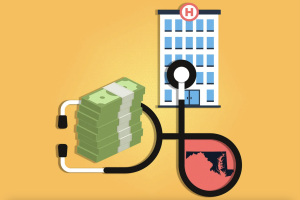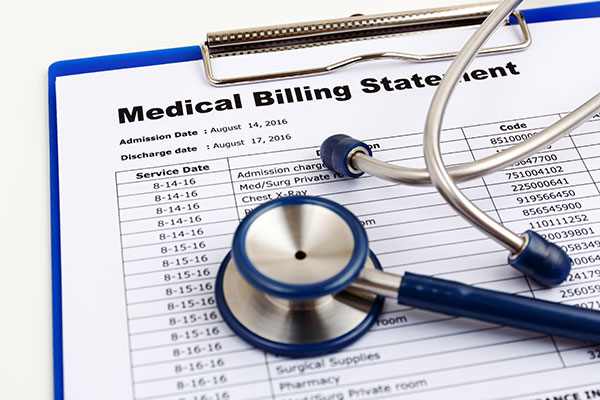Proper medical billing plays a critical role in the healthcare industry. Accurate and efficient billing practices are essential for several reasons. Firstly, it ensures that healthcare providers receive timely and appropriate reimbursement for the services they provide. Secondly, proper medical billing safeguards patients’ financial interests by preventing overcharging or inappropriate billing practices. Lastly, it enables healthcare facilities to maintain compliance with regulatory requirements and avoid potential legal complications. In this article, we will explore the significance of proper medical billing and how it benefits both healthcare professionals and patients alike.
Maintaining Financial Stability

This image is property of rightmedicalbilling.com.
Avoiding Revenue Loss
Proper medical billing is crucial for maintaining financial stability in healthcare organizations. Accurate billing ensures that healthcare providers receive the appropriate payment for their services, thereby preventing revenue loss. When billing is not done correctly, healthcare organizations may encounter delays or denials in payment, leading to a significant decrease in revenue. By implementing effective billing processes and ensuring that all services are properly documented and billed, healthcare providers can avoid revenue loss and maintain a stable financial position.
Ensuring Timely Payment
Timely payment is essential for the financial well-being of healthcare organizations. Efficient medical billing practices help in ensuring that claims are submitted promptly and accurately to insurance companies or other payers. By following billing guidelines and utilizing electronic claims submission methods, healthcare providers can expedite the payment process and minimize delays. Timely payment plays a vital role in maintaining cash flow, allowing healthcare organizations to meet their operational expenses and provide uninterrupted patient care.
Preventing Billing Errors
Billing errors can have serious consequences for healthcare organizations, leading to financial losses and potential legal implications. Proper medical billing practices aim to minimize billing errors and ensure compliance with regulatory requirements. These errors include incorrect coding, unbundling of services, duplicate billing, and inadequate documentation. Implementing rigorous quality control measures, conducting regular audits, and providing comprehensive training to the billing staff can help prevent billing errors and their negative impact on the organization’s financial stability.
Ensuring Legal Compliance

Adhering to HIPAA Regulations
Compliance with the Health Insurance Portability and Accountability Act (HIPAA) regulations is of utmost importance in healthcare organizations. Proper medical billing ensures that patient information remains secure and protected. Billing systems should be designed to handle sensitive patient data in a secure and confidential manner, with appropriate access controls and safeguards in place. Adhering to HIPAA regulations not only protects patients’ privacy but also helps healthcare organizations avoid legal consequences such as fines and reputational damage.
Following Coding and Billing Guidelines
Accurate coding and adherence to billing guidelines are critical for healthcare organizations to receive appropriate reimbursement and remain compliant. Properly documenting and coding medical services allows healthcare providers to accurately communicate the care provided, ensuring that payers have the necessary information to process claims. Additionally, following billing guidelines set by insurance companies and government agencies helps healthcare organizations accurately bill for services rendered. Consistent training and ongoing education for coding and billing staff are essential to ensure compliance and avoid potential revenue loss due to coding errors or noncompliance with billing guidelines.
Enhancing Patient Satisfaction

Preventing Unexpected Medical Bills
Proper medical billing plays a vital role in preventing unexpected medical bills for patients. When billing is done accurately and transparently, patients have a clear understanding of the costs associated with their healthcare services. This allows patients to make informed decisions about their healthcare and financial obligations. Transparent billing practices improve patient satisfaction by reducing confusion, minimizing disputes, and fostering trust in healthcare providers.
Providing Accurate Billing Statements
Accurate billing statements are crucial for maintaining patient trust and satisfaction. Patients should receive detailed and easy-to-understand billing statements that clearly outline the services provided, the associated costs, and any insurance coverage applied. Proper medical billing practices ensure that billing statements are error-free, properly itemized, and provide sufficient information for patients to review and understand. By providing accurate billing statements, healthcare organizations demonstrate transparency, professionalism, and a commitment to patient satisfaction.
Streamlining Administrative Processes

Reducing Administrative Burden
Effective medical billing practices can help streamline administrative processes, reducing the burden on healthcare organizations. By implementing electronic health record (EHR) systems and integrated billing software, healthcare providers can automate various administrative tasks related to billing. Automation reduces the need for manual data entry, minimizes errors, and saves valuable time for healthcare staff. Streamlining administrative processes through efficient medical billing practices allows healthcare organizations to allocate more time and resources to patient care, improving overall efficiency and productivity.
Improving Efficiency
Efficient medical billing practices contribute to overall organizational efficiency in healthcare settings. By optimizing billing processes, healthcare organizations can reduce administrative overheads and improve productivity. Electronic claims submission, automated coding and billing processes, and integration of billing systems with other administrative functions all contribute to increased efficiency. Improved efficiency not only saves time and resources but also enhances the overall quality of care by allowing healthcare providers to focus on patient needs rather than administrative burdens.
Supporting Healthcare Providers

Maintaining Cash Flow
Proper medical billing practices are essential for maintaining a steady cash flow in healthcare organizations. Billing errors, delays in claims submission, and denials can significantly impact the financial stability of healthcare providers. By implementing accurate billing procedures and promptly resolving any billing discrepancies or issues, healthcare organizations can ensure a continuous cash flow. Timely payment from insurance companies and other payers allows healthcare providers to meet their financial obligations, pay staff, and invest in necessary resources for high-quality patient care.
Fostering Trust and Credibility
Patients and healthcare providers rely on trust and credibility for a fruitful relationship. Proper medical billing practices contribute to fostering trust and credibility by ensuring accurate and transparent billing. Patients who receive correct and understandable bills are more likely to trust their healthcare providers and feel confident about the services they receive. Moreover, healthcare organizations that prioritize accurate billing are perceived as being accountable and trustworthy. By maintaining trust and credibility through proper medical billing, healthcare providers can strengthen their relationships with patients and the broader community.
Minimizing Audit Risks

Avoiding Penalties and Fines
Healthcare organizations face significant risks if they do not adhere to proper medical billing practices and regulations. Audits conducted by government agencies, insurance companies, or other external entities can uncover billing discrepancies, fraud, or noncompliance, leading to penalties and fines. By implementing robust billing processes, conducting regular internal audits, and staying updated with billing and compliance regulations, healthcare organizations can minimize the risk of audits and the associated penalties. Proper medical billing practices not only protect the financial stability of healthcare providers but also preserve their reputation and integrity.
Preparing for External Audits
External audits are a reality for healthcare organizations, and being prepared for audits is crucial. Proper medical billing practices include maintaining comprehensive documentation, ensuring coding accuracy, and conducting internal audits to proactively identify potential issues. By consistently adhering to billing guidelines and regulations, healthcare organizations can demonstrate their commitment to compliance and be better prepared for any external audits. Being well-prepared for audits reduces stress, saves time, and helps healthcare providers navigate the audit process smoothly while minimizing the impact on operations and finances.
Promoting Data Accuracy

Ensuring Consistency in Medical Records
Accurate medical records are essential for providing quality healthcare and ensuring patient safety. Proper medical billing practices contribute to data accuracy by ensuring that all services provided are accurately documented and coded. accurate coding allows for consistent medical record-keeping, which is crucial for efficient healthcare delivery, continuity of care, and accurate data analysis. Improving data accuracy through proper medical billing practices enhances patient outcomes, supports evidence-based decision-making, and promotes overall healthcare quality.
Improving Data Analysis and Reporting
Proper medical billing practices provide reliable data that can be used for effective analysis and reporting. Accurate billing data contributes to population health management, performance tracking, and identification of areas for improvement. Billing data can be analyzed to identify patterns of service utilization, evaluate the effectiveness of treatment protocols, and assess the financial performance of healthcare organizations. By improving data analysis and reporting through proper medical billing practices, healthcare providers can make informed decisions, enhance their operational efficiency, and contribute to the overall improvement of healthcare quality.
Facilitating Insurance Reimbursement

Optimizing Reimbursement Rates
Proper medical billing practices help healthcare organizations optimize their reimbursement rates. By accurately documenting and coding services, healthcare providers ensure that claims are submitted with the necessary information to support appropriate reimbursement. Optimizing reimbursement rates not only ensures financial stability for healthcare organizations but also allows for better resource allocation and investment in patient care. By properly billing for services rendered, healthcare providers can maximize their revenue streams and provide the best possible care for their patients.
Mitigating Claim Denials
Claim denials can have a significant impact on the financial health of healthcare organizations. Proper medical billing practices aim to minimize claim denials by ensuring accurate documentation, adherence to billing guidelines, and proactive resolution of any potential issues. By addressing common denial reasons such as coding errors, incomplete documentation, or lack of medical necessity, healthcare organizations can increase the chances of successful claim submissions. Mitigating claim denials through proper medical billing practices reduces administrative burden, optimizes revenue, and fosters financial stability for healthcare providers.
Preventing Fraud and Abuse

Identifying and Preventing Fraudulent Billing
Proper medical billing practices play a critical role in preventing fraudulent billing practices that can harm healthcare organizations and patients. By implementing strict billing controls, conducting regular audits, and utilizing effective monitoring systems, healthcare organizations can identify and prevent fraudulent billing activities. Fraudulent billing practices include upcoding, unbundling services, billing for services not rendered, or engaging in other illegal practices to maximize reimbursement. Preventing fraudulent billing improves financial stability, preserves the integrity of healthcare systems, and ensures that resources are allocated appropriately for genuine patient care.
Safeguarding Against Abuse of the System
Abuse of the healthcare system can occur when healthcare providers exploit billing practices to gain unjustified financial benefits. Proper medical billing practices safeguard against abuse by promoting transparency, accuracy, and compliance. By adhering to coding and billing guidelines, healthcare organizations prevent the abuse of billing practices that can lead to unnecessary tests, treatments, or services. Safeguarding against abuse of the system ensures that healthcare resources are used efficiently, enhances patient safety, and upholds the ethical standards of the healthcare profession.
Contributing to Healthcare Quality

Allocating Resources Appropriately
Proper medical billing practices contribute to effective resource allocation in healthcare organizations. Accurate documentation and coding of services enable healthcare providers to better understand their service utilization patterns, patient needs, and workflow requirements. This information is crucial for allocating resources appropriately, ensuring that the necessary staff, equipment, and facilities are available to provide timely and high-quality care. By appropriately allocating resources through proper medical billing practices, healthcare organizations can optimize their operational efficiency and ultimately improve healthcare quality.
Supporting Continuous Improvement
Continuous improvement is a hallmark of high-quality healthcare organizations. Proper medical billing practices contribute to continuous improvement by providing accurate data and insights for performance evaluation and quality initiatives. Billing data, when properly utilized, offers valuable information on patient outcomes, service utilization, and financial performance. Healthcare providers can analyze this data to identify areas for improvement, implement evidence-based practices, and track the effectiveness of quality improvement initiatives. By leveraging billing data for continuous improvement, healthcare organizations can enhance patient care, achieve better outcomes, and remain at the forefront of healthcare excellence.
In conclusion, proper medical billing is of paramount importance for healthcare organizations. It ensures financial stability, legal compliance, patient satisfaction, streamlined administrative processes, support for healthcare providers, minimized audit risks, data accuracy, insurance reimbursement facilitation, prevention of fraud and abuse, and contribution to healthcare quality. By prioritizing accurate and transparent billing practices, healthcare organizations can optimize their operations, provide high-quality care, and foster trust and credibility with patients and stakeholders.
